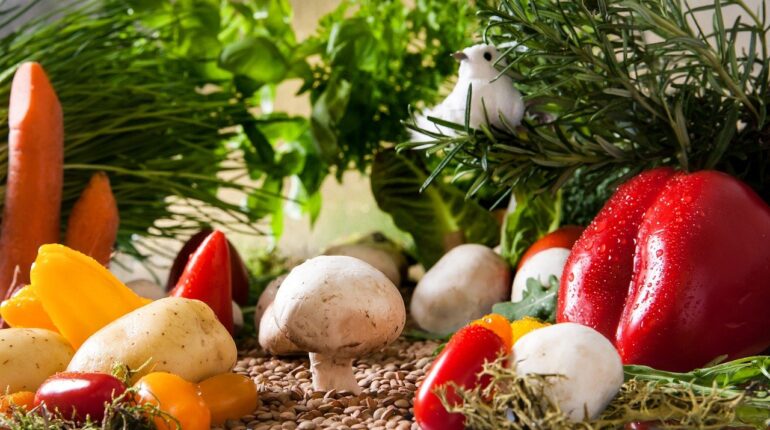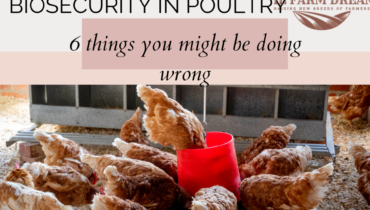Over the past month or so I had some messages from my readers on How to start farming at home and some other relevant questions that demand immediate answers.
Stay tuned as I answer your questions fairly.
One of the readers asked,
What is the easiest farm to start?
Farming is a way of life. Starting Farming at home involves passion, love, and consistency. Numerous farming ideas do not require any technical skill to start. Kindly follow as I unveil them to you.
Read also: Cabbage Farming In Ghana – The Sure-way To Start A Profitable Cabbage Farming In Ghana
In this guide, I’m going to walk you through how to start a farm, as well as give you the resources to help you get started with a farming business today.
How do you start a home farm?
Step 1: Identify your niche
Even if you know exactly what type of farm you want to start, diving headfirst into just doing it is never a good idea.
Read also: Animal Farming In Ghana – Which Animal Farming In Ghana Is Profitable?
Don’t skip the market research phase
Learning how to do market research is a step you really can’t skip because while it certainly helps if you know what you want to grow, you still need to know who will buy your product. and where are you going to sell it? and how you are going to do it, taking into account the competitors.
Even if you don’t know anything about formal market research methods, you can do your research to learn more about your customers, distribution channels, and how to set up a farm.
If you are already interested in a specific product, learn more about your local market. Visit farmer’s markets, meet other local producers, talk to shoppers while shopping. Better yet, survey farmers’ markets to make sure a particular crop or product is under-represented.
Also, contact your local extension number. Consulting services provide localized resources for most aspects of horticulture and smallholder farming. For example, as Oregon State University expands, there is a Small Farms portal where you can find more information about crops, grains, soil, livestock, and more.
It is also highly recommended that you contact your local state Department of Agriculture as part of the investigation process. Not only will they be able to provide you with the latest farming information in your state, but they can also help you determine which licenses you need to register and provide you with local information on food safety, pesticides, market access, and more.
Step 2: find a suitable Land
Once you know what you are going to grow, you must decide whether to buy the land or rent it.
Read also: Here Is The List Of Farm Tools And Their Uses – Read Now
If you buy land, you will have full control over its use, but you will also take the financial risk for the success of your business. This is one of the main reasons that land leasing is a popular option for many new farmers. This minimizes financial risks and requires a capital reduction from the start.
Things to Consider When Finding Land
Before you find the right people to help you buy land, it’s worth familiarizing yourself with the things you need to consider when browsing. At a minimum, this will include:
Your proximity to markets: Consider where you will sell your products or how you will reach distribution channels. If they are hundreds of miles apart, it will cost much more to get to market. It is often easier to start locally and move on. You’ve probably already completed your marketing research and should have a pretty good idea of where your market is. Use the diagram above to help you determine the “correct” area to begin your search for land.
Access to Water – It’s important to make sure you have a consistent supply of water, so be sure to ask a lot of questions and consider all your options. How will you provide water for plants, animals, and processing plants?
If there is a well on the land you are buying, it is always helpful to get information about the well, such as type, depth, performance, and age. You may also need a water quality report.
If the property is connected to a city water supply, knowing the price of the service can also help you determine the viability of a particular business. If you have to pay in gallons or cubic feet, you can reconsider trout farming and try camel dairy farming.
Soil quality. As with water, good quality soil is essential for most farmers. Ask the current owner about the soil test results. Soil tests are often available through local support and suppliers should await test results.
Soil testing can be an important indicator of production capacity and costs. Accurate predictions of crop-specific fertilizer requirements can be made based on test results that translate into true dollar value when grown. For livestock, different soils can even affect growth and health, sometimes requiring supplementation.
Premises and infrastructure: Depending on the type of farm, you may also need different dependencies. A grocery kiosk or farm store may require an upfront investment. And your cattle? Are there animal shelters on earth that you plan to breed? What about the production capacity? Different crops and livestock products will require different handling and storage equipment.
Be sure to think about things that are not directly related to property. What types of transport and roads are available to and from the area where you are farming? While you want a balance between easy access and proximity to markets, keep in mind that congested roads can affect the quality of livestock, soil, and water.
Neighbors: They can be a great resource or a big obstacle, depending on the situation. Do you produce agricultural products? What are your manufacturing practices? Are they compatible with yours? If you are planning on starting an organic vegetable farm but your neighbors spray your Christmas tree plantation with harsh pesticides and herbicides several times a year, this can make a big difference to your success.
Step 3. Obtaining financing
If, like most small farmers, you haven’t inherited a farm, finding money to learn how to build a farm and make your dream come true will be a key part of your marketing strategy.
As your business grows, you can buy things that will make your life easier. And even if you don’t have a lot of cash at a later date, the bank is more likely to lend you if they see you’re in a profitable transaction.
Write a business plan
For those who are looking for a loan, it is very important to develop a business plan. For the budding farm owner, this is no exception. Even if you are not looking for a loan, a business plan is a useful tool to help you determine which of your ideas are feasible and to remind you of your goals.
Step 4. Promote and sell your products
There are many different ways to market your agricultural products. While farmer’s markets are probably the most obvious example you can think of, there are other channels you can use to promote and sell your products.
Read also: Okra Farming In Ghana – A comprehensive Guide On How To Start Okra Farming In Ghana
You can even find a local producer cooperative that allows you to partner with other producers to market their products under a single brand.
Finally, although the age of supermarkets has made it difficult to retail produce, there are still many small local health food and health stores you can partner with, taking advantage of your often very loyal customers.
Start by developing a marketing plan. If you are creating a business plan, you will work on your marketing plan as part of this process.
Your comment is welcome.



